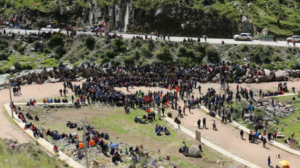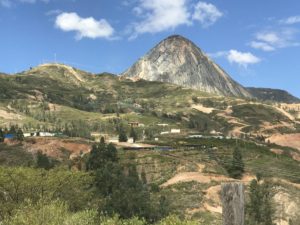Lessons from Peru

Recent events at MMG’s Las Bambas Mine is cause for reflection on a number of lessons learned over the years regarding mining and social conflicts in Peru. These lessons are applicable to mining projects in not only in Peru, but to projects in other developing countries as well.
- World class mineral deposits don’t necessarily result in world class mines. Despite the fact that a deposit may be “world class” and have enormous potential to generate significant benefits for the project stakeholders, there are a number of projects throughout the world that have yet to be developed or have experienced problems during development or operations as a result of social conflict. There is not one significant mining project or operation that has been completely free from social conflict; it’s just part of doing business. Companies should plan accordingly in order to reduce the potential for conflict and be prepared to manage such conflicts should they arise.
 Don’t count on the government to apply the rule of law or sort out community problems. Many governments simply do not have the capacity or political will to apply the rule of law nor to fully support mining projects or operations. It is important to establish good relations with the government at all levels prior to needing their assistance, and to work as closely with the government on development programs and projects designed at meeting the basic needs of the local population. Should conflicts arise, close communication and coordination is required in order to successfully manage the situation.
Don’t count on the government to apply the rule of law or sort out community problems. Many governments simply do not have the capacity or political will to apply the rule of law nor to fully support mining projects or operations. It is important to establish good relations with the government at all levels prior to needing their assistance, and to work as closely with the government on development programs and projects designed at meeting the basic needs of the local population. Should conflicts arise, close communication and coordination is required in order to successfully manage the situation.- Local stakeholders often have a completely different philosophy with regards to the distribution of benefits, rule of law, and how conflicts should be resolved. While mining companies generally work with the national governments in order to comply with legal and permit obligations, local stakeholders, who often have never had adequate support from the government, are likely to “take the law into their own hands” and try to resolve conflicts through blockades, protests and sometime resort to violence against the company and government representatives. It is important to understand these differences in philosophies early on in the life of the project.
- Jobs and benefits for local residents are not likely to be sufficient for other stakeholders in the greater area of influence. Mining projects and operations often find themselves in the midst of social conflict as a result of one group of local stakeholders receiving benefits, while another group farther away receives fewer or no benefits. Sustainable development programs should contain a mix of both local and regional development activities.
 Although sustainable development and environmental protection are important, many mining stakeholders are looking for short term benefits to address their immediate needs (employment and basic services). If these needs are not met, there is likely to be conflict. Although the provision of basic services is not strictly the job of the mining industry, communities will expect the company to take an active role to ensure that these services are provided as part of the company’s community/sustainable development program.
Although sustainable development and environmental protection are important, many mining stakeholders are looking for short term benefits to address their immediate needs (employment and basic services). If these needs are not met, there is likely to be conflict. Although the provision of basic services is not strictly the job of the mining industry, communities will expect the company to take an active role to ensure that these services are provided as part of the company’s community/sustainable development program.- Although it is easy to make commitments to provide for local employment and provision of local services, this can be a major undertaking, and if not done right can cause additional conflict. These programs require careful planning, qualified staff, and constant follow-up and monitoring to ensure that they are delivering the intended results.
- Local communities are easily influenced by those attempting to use mining social conflicts as a mechanism for financial gains, influence and political power. Should the conditions exist for social conflict, or if there is a start of a conflict, there are those persons who will use this as an opportunity for personal gain, through the manipulation of local and regional stakeholders in promoting their agenda. It is important to maintain dialogue with the legitimate community representatives, and not those parties interested in their own particular agendas.
- Environmental concerns are often utilized as a pretext to engage in dialogue regarding monetary compensation for “impacted” local stakeholders. Given this, it is extremely important to establish a first-class environmental management program and involve the local population in participatory monitoring programs.
Although it is unreasonable to expect that social conflict associated with mining can be completely avoided, by incorporating these “lessons learned”, mining companies can better avoid and manage social conflicts should they appear. Given that Peru has a long history of mining, and that mining continues to be an important part of the economy, Peru is in a unique position to share its lessons with the industry in other parts of the world, in order to increase the chances of success for other projects and operations in other countries.


